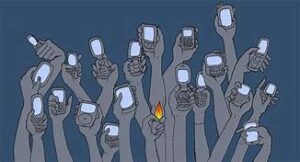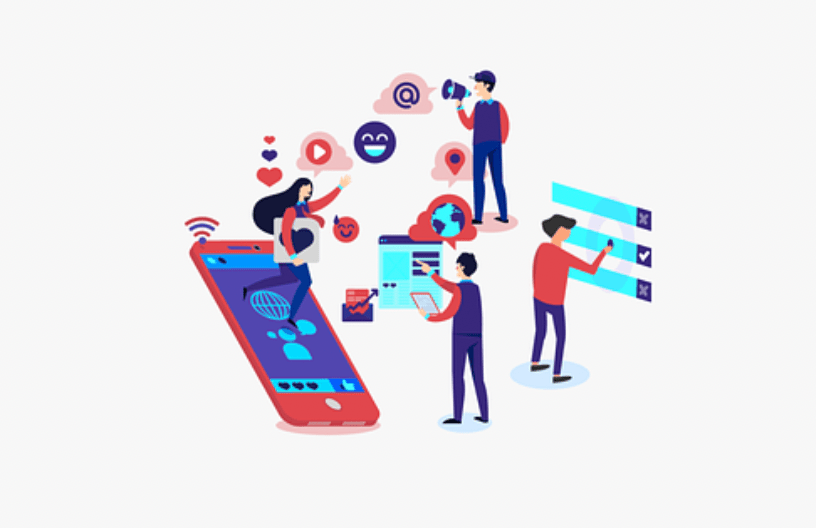Living with OCD can be difficult, especially when it comes to social media. For people with OCD, the internet can be a scary place. It’s full of distractions and potential triggers. But it doesn’t have to be that way! In this blog post, we will discuss how to manage your OCD in the digital age. We will give you tips on how to stay safe online and how to make sure your social media presence is as healthy as possible.
Contents
Effects Of Social Media On OCD

There is no doubt that social media can be a trigger for OCD.
- For many people with OCD, the constant scroll of newsfeeds and notifications can be overwhelming. The constant barrage of images and information can trigger anxiety and intrusive thoughts.
- In addition, the pressure to be perfect online can exacerbate OCD symptoms. It can be difficult to compare your life to the highlight reel that is social media.
- A sense of comparison can trigger a series of intrusive and self-deprecating thoughts which can be a source of distress and difficulty for individuals.
- One can also develop a habit of constantly re-check their social media handles again and again to feed the intrusive nature of obsessive compulsions.
- It’s also important to remember that everyone is curating their image online and that it’s not an accurate representation of reality.
- A person with a pre-existing mental disorder becomes more vulnerable to feelings of overwhelm and insecurity.
- Because aspects of social media and OCD can be quite similar, sometimes social media usage can make OCD worse.
But it’s important to remember that everyone’s life is different and that you are not alone in your struggle with OCD.
Tips To Manage The Effects Of Social Media On OCD

It is important to remember that everyone’s life is different and that you should not compare yourself to others.
- Acknowledge your triggers: If you know that social media is a trigger for your OCD, then it is important to acknowledge that. Avoiding social media altogether may not be possible or realistic, but you can try to limit your exposure.
- Set limits on your screen time: Too much time spent on social media can be detrimental to your mental health. Make sure to set limits for yourself and stick to them.
- Take breaks: If you start feeling overwhelmed or anxious, take a break from social media. Go for a walk, read a book, or call a friend.
- Set boundaries: It is important to set boundaries with social media. This may mean only checking social media once a day, or setting time limits for yourself. It is also important to take breaks from social media if it starts to trigger your OCD symptoms.
- Create a healthy social media routine: Just like you would create a daily routine for managing your OCD, it’s important to create a healthy social media routine. This might mean setting limits on how much time you spend online or only checking certain platforms at certain times of the day. It’s important to find what works for you and stick to it.
- Unfollow any accounts that trigger your OCD: If certain accounts make certain accounts make your OCD worse, it’s okay to unfollow them! You don’t have to subject yourself to triggers if you don’t want to.
- Talk to someone: If you are feeling overwhelmed by social media, it is important to talk to someone. This could be a friend, family member, therapist, or even a support group. Talking about your feelings can further help you manage your OCD.
- You are not alone in this. There are many people with OCD who are managing their disorder in the digital age. You can do it too! Just take things one day at a time and be gentle with yourself. If you need help, reach out to a friend or therapist. They will be more than happy to help you navigate this difficult journey.
- Remember that social media is not real life: It is important to remember that social media is not real life. People only post the highlights of their lives on social media. Do not compare yourself to others and remember that everyone’s life is different.
- Designate certain periods of the day: Fix certain times of the day to utter your fears and intrusions out loud, when no one is around. Sit with the discomfort and face your fears to eventually reduce the discomfort they cause.
- Seek professional help: Talking to a therapist will further give you the guidance to navigate through your symptoms and the effects of social media on them. Mantra Care has a team of mental health professionals available for assistance and help.
Conclusion
In conclusion, it is important to be aware of the effects that social media can have on OCD. If you are struggling with OCD, remember that you are not alone in this journey! Many people are managing their OCD in the digital age. Just take things one day at a time and be gentle with yourself. You got this!
If you are looking for affordable Online OCD Counseling MantraCare can help: Book a trial OCD therapy session


